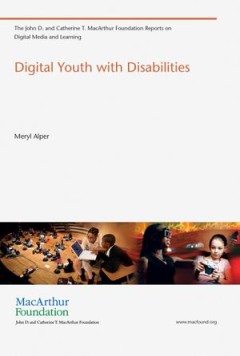Filter by

Handbook of Teaching Competency Development in Higher Education
This is an open access book. It draws from relevant theories and approaches to teachers’ professional development (TPD) and innovative and inspiring TPD practices in higher education. It first lays a solid foundation for the rest of the book, through critiquing prevalent theories, approaches, and teaching competency frameworks guiding TPD in higher education, and defining the key concepts rel…
- Edition
- -
- ISBN/ISSN
- 978-981-99-6273-0
- Collation
- X, 158
- Series Title
- -
- Call Number
- -

Riskante Nähe
Ausgangspunkt der Arbeit ist eine neue, mediale Thematisierung sexueller Gewalt durch pädagogische Fachkräfte seit 2010. Dieser wird zu Beginn der Arbeit als Gegenstand seine ambivalenten Folgen dargestellt. Zum einen entwickelte sich ein großes Potential für Prävention, Intervention und längst überfällige Aufarbeitung. Zum anderen kommt es zu einem gesellschaftlichen Generalverdacht ge…
- Edition
- -
- ISBN/ISSN
- 978-3-658-43049-8
- Collation
- XIX, 403
- Series Title
- -
- Call Number
- -

Latino, Hispanic, or of Spanish Origin+ Identified Student Leaders in Medicine
This book explores the rich history and current state of the Latina, Latino, Latinx, Latine, Hispanic, or of Spanish Origin+ (LHS+) community’s representation, activism, and leadership within American medicine. It meets the demand for a reference that highlights both the underrepresentation and growth of the LHS+ community in medicine, especially as the LHS+ population now represents the larg…
- Edition
- -
- ISBN/ISSN
- 978-3-031-35020-7
- Collation
- XXVIII, 245
- Series Title
- -
- Call Number
- -

Social Media for Civic Education
This open access book provides the theoretical and pedagogical foundations for a promising new approach to civic education: using social media to teach civics. While many measures indicate that youth civic engagement has long been in decline, many of these measures fail to take into account all of the ways that youth can interact with civic life. One of these understudied ways is through social…
- Edition
- 1
- ISBN/ISSN
- 978-3-031-10865-5
- Collation
- -
- Series Title
- Palgrave Studies in Educational Media
- Call Number
- XIX, 161

Migration, Education and Employment
This is an open access book which focuses on different aspects of education, employment, and successful integration of migrants in three countries: Norway, Sweden, and Switzerland. The chapters in this book reflect on these issues from micro, meso and macro perspectives; some are based on interviews with migrants and people who work with them, others on documents and literature about migration.…
- Edition
- -
- ISBN/ISSN
- 978-3-031-41919-5
- Collation
- VIII, 203
- Series Title
- -
- Call Number
- -

Using Social Theory in Higher Education
This open access book offers a unique and refreshing view on working with social theory in higher education. Using engaging first-person accounts coupled with critical intellectual analysis, the authors demonstrate how theory is grappled with as part of an ongoing practice rather than a momentary disembodied encounter. In a structure that creates a space for relational dialogue, each chapter is…
- Edition
- -
- ISBN/ISSN
- 978-3-031-39817-9
- Collation
- XIV, 284
- Series Title
- -
- Call Number
- -

The knowledge capital of nations :education and the economics of growth
A rigorous, pathbreaking analysis demonstrating that a country's prosperity is directly related in the long run to the skills of its population.OCLC-licensed vendor bibliographic record.
- Edition
- -
- ISBN/ISSN
- 9780262329170
- Collation
- 1 online resource (xii, 262 pages) :illustrations.
- Series Title
- -
- Call Number
- -

Digital Youth with Disabilities
An examination of media and technology use by school-aged youth with disabilities, with an emphasis on media use at home. Most research on media use by young people with disabilities focuses on the therapeutic and rehabilitative uses of technology; less attention has been paid to their day-to-day encounters with media and technology—the mundane, sometimes pleasurable and sometimes frustrating…
- Edition
- -
- ISBN/ISSN
- 9780262527156
- Collation
- -
- Series Title
- -
- Call Number
- 362 ALP d

Soft circuits :crafting E-fashion with DIY electronics
Introducing students to the world of wearable technology.OCLC-licensed vendor bibliographic record.
- Edition
- -
- ISBN/ISSN
- 9780262320047
- Collation
- 1 online resource.
- Series Title
- -
- Call Number
- -

Posthumanist and New Materialist Methodologies
This book features interviews with 19 scholars who do research with children in a variety of contexts. It examines how these key scholars address research 'after the child’ by exploring the opportunities and challenges of drawing on posthumanist and materialist methodologies that unsettle humanist research practices.
- Edition
- 1
- ISBN/ISSN
- 978-981-15-2708-1
- Collation
- -
- Series Title
- Children: Global Posthumanist Perspectives and Materialist Theories
- Call Number
- XX, 224
 Computer Science, Information & General Works
Computer Science, Information & General Works  Philosophy & Psychology
Philosophy & Psychology  Religion
Religion  Social Sciences
Social Sciences  Language
Language  Pure Science
Pure Science  Applied Sciences
Applied Sciences  Art & Recreation
Art & Recreation  Literature
Literature  History & Geography
History & Geography